The degree has helped me understand that there's an enormous amount that we can do, every day, to help support people living with dementia to live well. Not just in an aged care setting, it's in a broader social impact as a society, as a community, as organisations.
As I started the best thing was every single topic that we covered, I could take to work and implement things straight away, and make change…… I could see immediate change in my workplace.
Once I sat through the MOOC I could see the merit of understanding the neuroscience and the behavioural and caring aspects it was a natural follow on to take on the BDC [Diploma].
My goal is to provide a tangible difference in quality care for dementia. I’ve loved the course because it’s so specific, just focusing on the one field.. you build a bigger picture of dementia … from a personal perspective and the care.… and social impact.
Feedback from our Students and Graduates
My motivation to start study occurred one evening at work. I was with a group of five people living with dementia and we were discussing the impacts that dementia had on their lives. There seemed to be a general feeling of resignation and hopelessness, so I said, “I want you to know that at this moment, right around the whole world, there are scientists who are working to find a cure for dementia, and I promise that your experiences will not have been in vain”. It was in that instant I cemented my commitment to completing the Bachelor of Dementia Care. Although I was to falter a few times, I constantly reminded myself of my promise.
Online study was perfect for me. The lecturers managed to engage students from many locations and were responsive to discussion board questions and collaborative sessions. Study fitted in with my working and personal life and assignment feedback encouraged me to dig deeper and strive harder. I have learnt so much and gained a much greater understanding of dementia. Like so many of us in the industry I have had previous dementia training, however the opportunity to study and gain recognised qualifications was too good to resist. I thoroughly recommend study through the Wicking Dementia Centre to anyone wanting to provide compassionate and informed support to people with dementia.
I have now completed all three MOOC courses and can honestly say that they have been the catalyst for me wanting to further my studies. I work with people living with dementia and can truly say that the insight the Diploma course content has given me has made a remarkable difference to how I conduct my professional self within my role. I find myself trying to 'live in their world' because I now have just a glimpse into that world.
Thank you for all the support during this unit, the learning and depth of knowledge imparted has been an incredibly rewarding experience and I feel so inspired and prepared to go forth and speak out with evidence and compassion.
I have the privilege of down time during my working day to get on my phone and access the content. I thoroughly enjoy the opportunity to complete a discussion board post relevant to the learnt content and feel by participating in this optional activity that it cements my learning. This unit is so relevant to me as a home care worker/dementia carer.
Doing [the MOOC] in your own time and at your own pace was fantastic, it gave you the opportunity to really think about it step by step. By doing it online it was really good … I could fit it into my daily life in my timeframe.
Understanding Dementia MOOC testimonials
I feel this study is great for people caring for people living with dementias at home or nursing home and even where people with dementia attend for day respite facilities. I found this as a person living with a Mixed Dementia very helpful to understand in some way about what is happening to me without my depression or anxiety getting worse. Even at High Schools this knowledge about dementia needs to be taught. Community Centres, Senior Citizen Group, Presidents in communities. So they will know how to react when a person shows a sign of dementia.
This is the best course I have ever completed. I am a Registered Nurse with PostGraduate Certificate and Diploma and I cannot believe how wonderful this course was. It was like having a great book, you are sad to finish. I am disappointed it is over, but excited about the brain injury course coming up in June. I have never worked with dementia patients and now want to get into that field. You should be congratulated, this course is amazing. Well done, you should be so proud.
I just would like to say that this is the BEST MOOC I've ever taken, in terms of content and delivery. The course actually delivers what was promised, I know I'm not finished with the course yet, but already I've gained much better understanding about dementia since I started this course. I found the conversation-type delivery very helpful to understand the subject/lesson being discussed. Thank you very much for making this course available, it helps me overcome my apprehension regarding dementia.
I would like to take this opportunity to thank all of you for designing such a wonderful course. It not just enhances the knowledge regarding dementia but also, emotionally gets you so involved in it. I am enjoying this course to the fullest and hope to make the best use of it in my area of work. Thank you once again for all your efforts in designing this course.
Thank you so much for this course. I'm enjoying learning about dementia this way, the course content is brilliant and I'm so very impressed with the way the course has been put together. I love the conversations between professionals in particular, and am grateful for their involvement and sharing of their expertise with me. It is all wonderfully clear, with a good level of the scientific/medical information, but without being beyond those like me who have absolutely no medical background. And it is not at all condescending. A special thanks to Prof. Fran McInerney. She would have to be one of the best educators I have ever encountered.
Preventing Dementia MOOC testimonials
The program was excellent from start to finish. Thank you so much for opening this course up to people across the world at no cost. I am much better informed about dementia, the risk factors and what I as an individual can do to modify my risks as a result of the course.
Thank you for creating an engaging and excellent course that's helped me understand more about dementia and put me into a better position to support my parents and look at my own modifiable risk factors.
The two dementia courses I did through you were simply amazing. Well constructed, user friendly, excellent content, and I learnt a lot. I was involved in education all my working life (in retirement I am now working as a carer) and so have something of a critical eye. I can honestly say that your courses are amongst the best I have ever done, and certainly the best online ones. So with my appreciation and thanks.
Certainly helpful as I am in mid-life and I can start making changes now knowing they will be of benefit to my health in the future. Very interesting and informative. Will also help in my aged care job.
Since completing both the Understanding Dementia and the Preventing Dementia MOOCS, I am now training to become an accredited Montessori for Dementia and Ageing practitioner, which I first learnt about during the ‘Understanding‘ MOOC. Both MOOCS are brilliant in so many different ways!
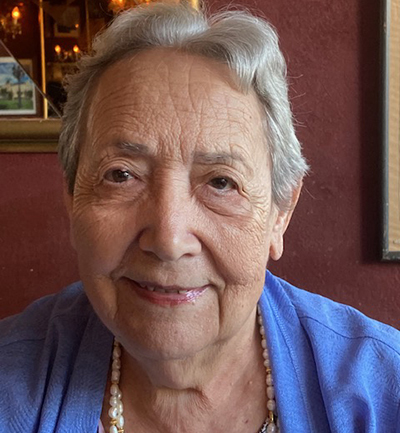
Achieving better outcomes for people living with dementia
My name is Lauretta and I have just graduated from the University of Tasmania with a Diploma of Dementia Care. I had already done the Understanding Dementia MOOC course and wanted to improve my knowledge about dementia. I had worked for many years with dementia clients as a diversional therapist and am still doing sessions (at present online). I also realised that I too could develop dementia so it would be useful to have a better knowledge background. I took the opportunity to enrol and was really happy to be accepted. I was 77 when I enrolled so being able to study at my age and graduating at 80 indicates that ageism is no longer a factor for people who wish to consider study later in life.
I have worked for Dementia NSW taking groups of people who had the early diagnosis of dementia in the Living Memory Loss Program. I really had to use my own ideas in planning and presenting monthly programs to various groups. When I studied at the University of Tasmania, many of my ideas were validated.
I gained an academic understanding of brain dysfunction in dementia, challenges for dementia clients and their families and how the system works for people who need care from a personal and professional perspective. The online learning process took some time getting used to but as our society is going to be using online learning more and more, I feel really pleased to have been part of that. I received much support from my husband a retired doctor and my large extended family.
I have seen many positive changes in how we work with people who have dementia. The course made me realise that dementia is another disability that needs our understanding and compassion and that with the help and guidance from qualified people, those with dementia can have good life experiences and be part of their community for as long as possible.
I can be part of that as I enter my next decade. I hope to be a support person to carers and families living with dementia using my added knowledge and many years of experience.
My message to other prospective students who work in disability or aged care is to get qualified academically to back up your workplace experiences and achieve better outcomes for people who have dementia, and this online platform is a great way to reach that goal.
Lauretta, Diploma of Dementia Care graduate, August 2021
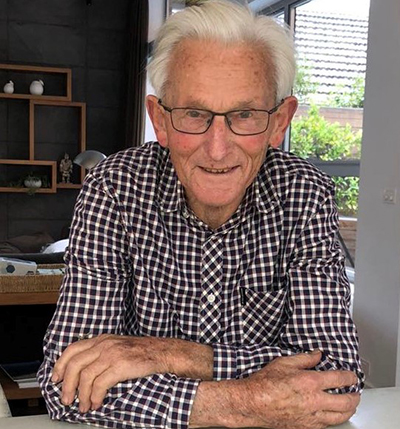
How my newfound knowledge of dementia care has helped my family
When my dad was diagnosed with Alzheimer’s my sisters, and I were quite unsure about it all. We contacted Dementia Australia who were great and they directed us to the Understanding Dementia and Preventing Dementia MOOCs. I completed both MOOCs and then took up the Bachelor of Dementia Care at the University of Tasmania with the aim of becoming more informed for my family and enabling us to target care for my dad as well as know how to interact with him.
It certainly has helped.
Our promise to him was to keep him at home for as long as possible and the information from the course has allowed us to create an environment with support for him. It has been a few years now since diagnosis and dad has turned 90 and is still at home. The knowledge I have gained is now assisting us as we plan for the next stage of his care, if he needs to be cared for in another location. I was able to ask pertinent questions at various facilities and when my sisters mentioned I was studying Dementia Care at the University of Tasmania, some mangers knew about the Wicking Dementia Centre and other were interested in it.
I took on this study whilst working full time and running a family business. As I had no urgency, I completed a unit per semester plus two spring units which took three years. I found the content easily accessible and interesting with a variety of presentations and assessments. For a person a long time out of study and not tech savvy, the introduction units gave a solid foundation and range of tools which I could use for my study and help was always available.
Being able to communicate across time and space was astounding. There was opportunity to mix with a variety of people from various locations and backgrounds. It amazed me; for one assignment I was in Bali, another I was in far north Queensland, one in Sydney and another in Hobart – this led for interesting conversations about the weather!!
I have also found that my new knowledge has been helpful for many of my friends who themselves, or their parents, are now people with dementia, and I can recommend starting with the MOOCs. Although I only competed the Diploma of Dementia Care, I have found the experience and knowledge invaluable for giving my dad the best possible outcomes on his dementia journey.
Rosemary, Diploma of Dementia Care graduate, August 2021
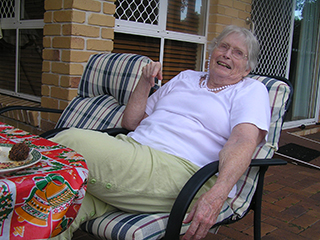
Handfuls of usefulness
In Room 17 of the secure dementia unit, a plump grey-haired woman stood next to the bed clutching two small teddies. Upon seeing me, her face broke into a broad smile. ‘Hullo, I was just going to see if you were going to come and … um do the thing that the others were going to do…’.
Her voice trailed away. I squeezed her to me and she returned my hug with enthusiasm. My mother was never one for physical displays of affection before she developed Alzheimer’s.
Over morning tea in the guest room she chattered on, her words an incoherent jumble. Occasionally she came up with a gem. ‘I love them!’ she exclaimed once, referring to something known only to herself. ‘They’re such handfuls of usefulness.’
I couldn’t help but smile at this apt phrase for things small and useful, and filed it away in my memory. Another time she described something as being ‘enormously tiny.’ I burst out laughing, immediately conjuring up an image of a miniature elephant.
When it was time for me to leave, Mum followed me and tried to slip out the front door behind me. ‘Mum, you have to stay here,’ I said gently. She looked at me blankly. The nurse rushed over and steered her away.
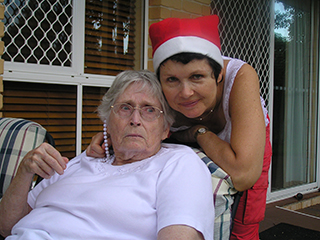
I wanted to look back, to make sure she was all right. But I couldn’t. I was afraid of being overwhelmed by grief, had to hold it tightly inside me. It was another four years before she died and I could let go.
I wish I had the knowledge then that I’ve gained from the MOOC. I would have had a greater understanding of my mother’s world and the changes that were going on in her body and mind. And I like to think I’d have been more patient and compassionate.
In some way, doing this course has been my tribute to her. Everything l’ve learned, from the science of the brain to methods of communication and activity planning, could be described as many handfuls of usefulness.
Robin, UD MOOC participant
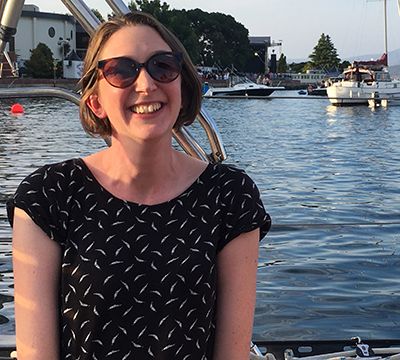
Understanding Dementia MOOC – a personal experience
Kate found out around 6 months ago that a family member in the UK had been diagnosed with Alzheimer’s Disease and she was desperate to find out as much as she could about what the diagnosis meant to her and her family.
After trawling the internet and realising there were just too many sources of information and opinions for her to sort through, she remembered the Wicking Dementia Centre and the research they had been doing over the years, and quickly signed up for the free, online, Understanding Dementia MOOC.
It was perfect for her situation, a working mother, with not much time on her hands, with an urgent motivation to find out the facts on dementia. She loves the fact that she can do this online and at her own pace. Dropping in and out when she has time to herself, and not getting left behind because she is busy. The 10 minute videos are like gold to her, as she can easily digest a summary of the information she is learning about.
It’s been a pleasure to study and just knowing the facts around dementia means that she can channel information through to other family members and start to understand what the future will look like as they charter new territory together.
“I found it was really hard in the early stages of the diagnosis, it was really confronting, and this course has helped to know we are not the only ones, and what is happening to our family is common with everyone touched by dementia.”
Kate, UD MOOC participant
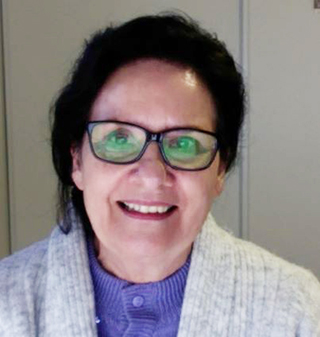
Dementia education – the practical outcomes
I first heard about the University of Tasmania’s MOOC on Understanding Dementia, around three years ago. My role as an aged care nurse had changed to caring and meeting the needs of residents living with dementia and I felt very underprepared. The online course gave me greater insight into how the person living with dementia viewed his or her world. I then completed the MOOC on Preventing Dementia. Around this time my career pathway transitioned into the role of clinical nurse educator for my organisation while still doing active nursing. The latter role has now ceased, and I am an educator, part-time, for two care homes.
I was very affected by the content of the MOOCs and created small learning booklets on dementia to assist my care team to understand why so-called behaviours occur and how we could best meet unmet needs. I desired to learn more about dementia so embarked on a learning journey through the Bachelor of Dementia Care. Again, I have learned so much from this course that the new knowledge now informs my training sessions. Dementia is so much a part of caring in residential homes and training is a vital component in preparing carers and nurses to deliver person-centred dementia care.
My organisation is transitioning into incorporating dementia care as an active part of caregiving with training online modules now produced. I was privileged to be involved in that process, sharing my new knowledge to practical outcomes. I have given dementia care workshops, created toolboxes, and made dementia care a part of the induction process into my care homes. We have also introduced an informal meeting group for the family members of the residents living with dementia. We recognised the deep sense of grief and loss from some family members as they struggle to remain connected to their loved one. The name of our group has “Connection” in it. This has been very successful in helping people understand the effects of dementia, how it affects the brain and therefore communication, and promoting the reality that the person is still present despite the impaired ability to communicate with words.
On a final note I have promoted the MOOCs every time they are available and am currently promoting the Diploma of Dementia Care. I am pleased to report that several of the carers have completed the MOOCs and a nurse is about to embark on the Diploma course. I would like to thank the University of Tasmania for making dementia care a prominent part of caregiving. I have many experiences where my new knowledge made me a better nurse, more patient, caring, listening and assisting the resident to feel safe in my company.
Margaret, UD and PD MOOC participant and Bachelor of Dementia Care student
